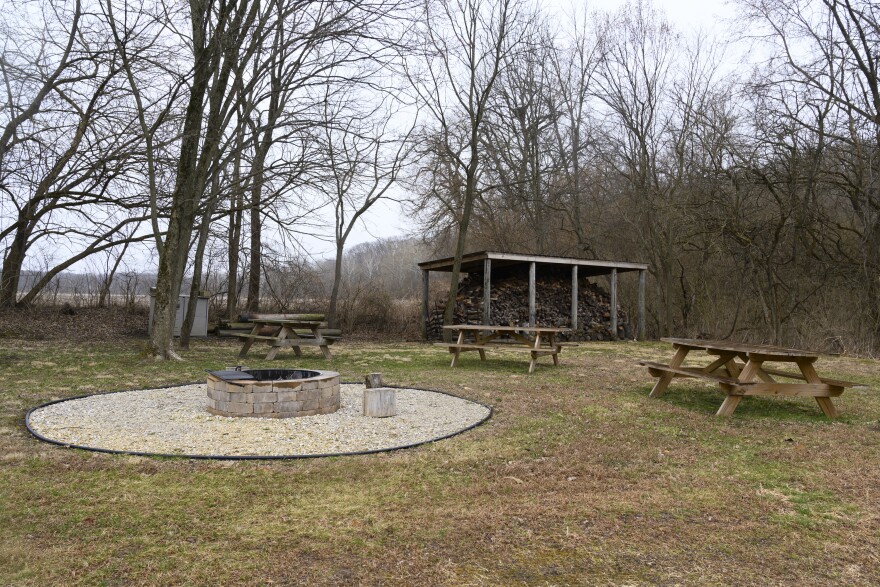After a meeting with Chillicothe Economic Development Director Amanda Beadles, Laura and Jim Sniff uncovered the next step in their 20-year journey.

The Sniffs purchased the land that would become Blue Ridge Community Farm in March 2001, and they were searching for a way to expand the place that had already given their son Jimmy, who has autism, a place to live, work, and play without fear of judgement.
Laura and Jim shared their desire to promote and sell products from the farm and from people with disabilities across the country and Beadles, who was new to the community at the time, presented them with what she saw as a prime opportunity for growth: Picket Fence Floral, Gift, and Garden Center.
“I said, ‘I just think this is way bigger than wha tyou’re imagining,’” said Beadles. “I was just sharing what made my heart light up. They caught on to that, and they have just been full steam ahead since.”
Come June when the sale of the store is finalized,the Sniffs can turn their attention to realizing the next step of their dream—establishing a campus-like environment for people with disabilities. Jim Sniff has worked in real estate for 37 years, and in that time, he has been able to acquire the shopping center and apartment complex next to Picket Fence.
“What we’re doing now and the pieces that have come into play, we have this once in a lifetime opportunity to actually build a safe campus for adults,” said Laura Sniff. “Between the farm and Picket Fence, we can offer so many different opportunities that aren't fast food or janitorial.”

In 2001 when they purchased the 245 acre farm, Jim initially envisioned the land to be a great place to retire—but when one of Jimmy’s teachers asked to bring his class out for a field trip, their plans began to change.
“The kids could be kids,” said Jim Sniff. “Regardless of their disabilities and behavior issues, they just really seemed to thrive out here.”
Soon after that first field trip, Laura stumbled upon Down Home Ranch in a copy of People Magazine. The Elgin, Texas-based farm was founded in 1989 by a couple whose daughter was born with Down syndrome, and offers a number of job opportunities and housing options for people with disabilities.
It was this discovery that inspired the Sniffs to officially launch Blue Ridge Community Farm, so, in 2009, they decided to relocate from Dunlap to live on the farm full-time.
Currently, the farm is home to alpacas, chickens, donkeys, a horse, and golden retrievers. Over four miles of roads and trails wind their way through the property, as does a creek and a portion of the Santa Fe Railway.

Multiple campsites feature fire pits and benches constructed by Eagle Scouts and Caterpillar volunteers, and some are complete with outhouses built with repurposed barnwood. Towering trees create a natural amphitheatre on a westward-facing hill for concerts and weddings, and large hoop houses provide space for their burgeoning garden program.
Field trips include arts and crafts, music therapy, and lessons on taking care of the animals—and to top it off, they are completely free.
“We self-fund,” said Jim Sniff. “Now, with so much expansion going on, we’ve reached out to a lot of friends in the community and business leaders, and people like that is who we’re working with now.”
The Sniffs have never written themselves a paycheck from Blue Ridge, and their goal is to continue upcycling materials on the farm and putting all funds back into the program to continue its development.
“What’s really important to us is to be self-sustaining, and to use the ground to support our programs and services,” said Laura Sniff. “So that's another reason why the purchase of Picket Fence...is so important because that will help fund our nonprofit for years to come.”
Often, when people with disabilities age out of the public school system at 22, parents are left without options for what to do next—providing hope for those parents is another driving force for Laura and Jim. The self-sustaining financial plan allows Blue Ridge to be consistent in their program offerings, giving parents of other children with disabilities comfort in knowing that they will always be available.
“It’s very troubling to see the worry and the anxiety on the faces of the parents involved,” said Jim Sniff.“If we can somehow make their lives a little bit better,and their children’s lives, by doing this, that’s why we’re here.”

With a multifaceted operation that allows for employment and entrepreneurial opportunities, the Sniffs hope Blue Ridge can make space for people with disabilities to build and live out journeys of their own.
“Everyday when I look at our son and when we meet his friends and their families, that’s all the motivation thatwe need to keep going because they’re amazing people,”said Laura Sniff. “It’s such a privilege to be able to do this.”
Community support is the greatest funding source for WCBU. Donations from listeners and readers means local news is available to everyone as a public service. Join the village that powers public media with your contribution.


